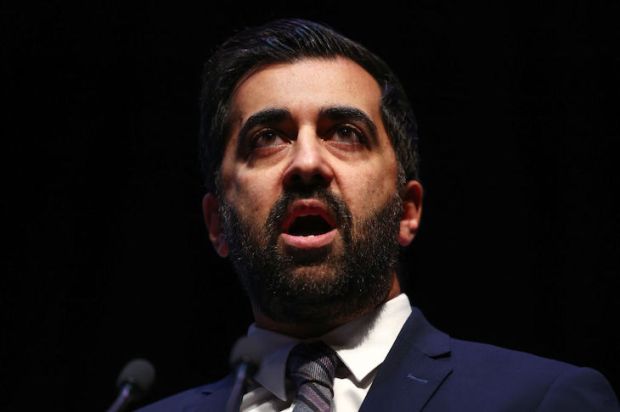There have been strange goings on in Scotland. A few weeks ago, the Supreme Court clarified that the Scottish parliament does not have the power to unilaterally call a second independence referendum. The ruling was never going to have gone down well with the SNP, but has the Supreme Court’s slap down sent the nationalist movement doolally?
Take the strange case of Michael Russell’s comparison of the current UK government to the British Raj in the days of the Empire. On Sunday, the president of the SNP and former Scottish government minister defended an article he had written in the pro-independence newspaper The National which appeared to draw this parallel.
Is such a comparison appropriate, mused the host of BBC Radio Scotland’s The Sunday Show, in an interview with Russell.
To place Scotland’s current situation in any form of colonial context is obviously crass
‘The comparison I was making was to say that there are elements of post-colonial policy that are operating at the present moment,’ responded Russell. He continued to cite ‘post-colonial policy’ as his interviewer pushed him on why he had compared the plight of millions of Indians under colonial occupation with Scotland’s current situation. In an atmosphere thick with tension, Russell haughtily suggested his questioner go back and read the article again: ‘Clearly you haven’t read it properly.’
But in reading the article, references to the post-colonial era are absent. The comparison to India comes where Russell discusses a recent comment by Alister Jack, the secretary of state for Scotland. Jack suggested the ‘duck test’ – if it walks like a duck, quacks like a duck… – be applied to decide when, if ever, the big question should again be put to the Scottish people. His point, though clumsily put, was that if it comes to pass that the will of the Scottish people is for separation, then that reality will be self-evident and therefore have to be acted upon.
To see the SNP revert to language associated with the populist right is refreshing: the ‘progressive’ spin attached to its brand of nationalism was never convincing.
Jack’s remark ‘is actually very reminiscent of the old colonial approach to self-determination’, writes Russell. ‘It was, to take only one example, the handful of officials and politicians in the British Raj who regularly told (over) 200 million Indians in the early part of the 20th century that they – and they alone – would know when the people were suitably advanced to take the awful responsibility of self government. Until then, best just to do as they were told.’
That certainly appears to read as a direct comparison. Russell continues:
‘Scotland certainly does not meet the classic definition of a colony but the way the Westminster government and Parliament behaves towards Scotland now has strong parallels with the approach taken during the last years of the colonial era.’
Surely another clear comparison with colonialism – notwithstanding the ‘classic definition’ qualifier?
To place Scotland’s current situation in any form of colonial context is obviously crass, ahistorical and an insult to those who really did suffer subjugation. Russell’s freedom is not restricted by sharing a democracy and open society with people in England. Our system of elective governance, representative of nationhood existing at both British and Scottish levels, is not a hangover from colonialism but a modern expression of democratic pluralism – which is what Russell and his colleagues are really fighting against.
Russell is not the first senior nationalist to use over-the-top language in recent weeks. Immediately after the Supreme Court ruling, Nicola Sturgeon addressed a small crowd outside Holyrood as ‘supporters of Scottish democracy’. She now refers to the nationalist movement as ‘Scotland’s democracy movement’ and labels opponents ‘democracy deniers’.
For a movement that claims to be on the up, confident in its ability to achieve its ultimate goal, it really is all very odd. In one sense, to see the SNP revert to language traditionally associated with nationalists of the populist right is refreshing: the ‘progressive’ spin attached to its brand of nationalism was never convincing.
Gandhi once said that a man is a product of his thoughts. By that reckoning, Michael Russell is a man of small stature. His ‘parallels’ with late colonialism come across more as a cry of desperation than a cry for freedom.
The post The SNP’s colonialism myth appeared first on The Spectator.
Got something to add? Join the discussion and comment below.
Get 10 issues for just $10
Subscribe to The Spectator Australia today for the next 10 magazine issues, plus full online access, for just $10.




















Comments
Don't miss out
Join the conversation with other Spectator Australia readers. Subscribe to leave a comment.
SUBSCRIBEAlready a subscriber? Log in